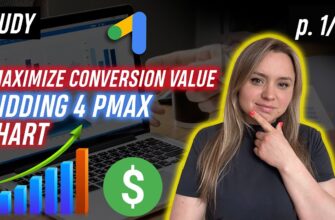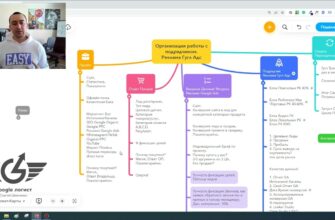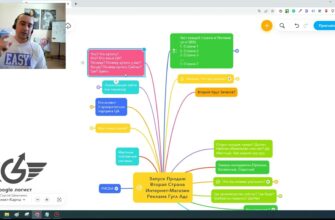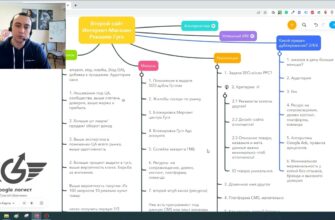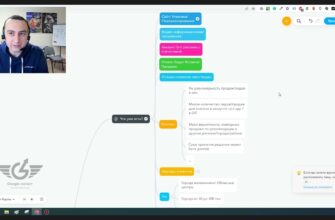The US e-commerce market is striking in its scale. It seems that Ukraine and the United States are completely different in mentality and in all the processes of the country. But we are a bit similar, at least in the way we shop. Today we will look at a case study from google about 4 types of holiday shoppers and their buying behavior.
Black Friday and Cyber Monday are some of the most popular days of sales and bargaining in most of the world in which e-commerce is developed. And often the majority of advertisers are ready to spend almost all their marketing resources on getting results on these days. But it is important to remember that buyers are active from October to the end of December. And if you only focus your resources on the state of emergency and Cyber Monday, then you can lose an even greater part of potential consumers.
A new study by Google US reveals some interesting facts about holiday consumers. Let’s start our analysis with the 4 types of holiday shoppers: Evergreen, Early Bird, Deal Seeker, and Last-Minute Shopper, and new ways to help them navigate the biggest trading moment of the year.
How many calls and sales will I get by ordering contextual advertising from you?
I need to calculate the conversion of my website Describe
the task
in the application
Calculate potential ad revenue Google
contextual advertising calculator
Evergreen – a buyer who distributes his purchases throughout the season.
Early Bird – always makes most of the purchases at the beginning of the season.
Deal Seeker – makes most of the purchases on sale days (Black Friday or Cyber Monday).
Last-Minute Shopper – postpones most of his purchases to the last moment.
If you look at the overall statistics, only 18% of buyers are looking for bargains and consolidate them for the period of the biggest sales (such as Black Friday and Cyber Monday). And this means that the competent distribution of marketing resources will make it possible to make much more results throughout December.

Timing is everything
Meet the four types of holiday shoppers, each with their own unique behaviors.

Regardless of the type of buyer, the demands of each of these types have grown.
53% of all users conduct a thorough research on where to buy, at what price, where the quality is better and the conditions are favorable.
40% are very demanding on sellers.
How many calls and sales will I get by ordering contextual advertising from you?
I need to calculate the conversion of my website Describe
the task
in the application
Calculate potential ad revenue Google
contextual advertising calculator
48% are impatient and want to shop as quickly as possible.

Just imagine, 51% of all shoppers said they weren’t sure at the last minute where they wanted to buy a product/service (meaning they had there were several options from different sellers). This opens up endless possibilities for all sellers.
Another important trait of holiday shoppers is that they thoroughly research the product before buying, which means that sellers need to pay special attention to describing their products and competitive advantages.
People spend a significant amount of their time researching, browsing and buying online. In some cases it is more than half. Google has found that even Flash Buyers (those who need to make a purchase as soon as possible) will do research. They now spend 54% of their time shopping online.

Also, let’s look at this point in more detail.
Google asked buyers how they prefer to conduct online research so we can consider where to focus our efforts to get the best results. This is how people browse before they buy.



66% of bargain-seekers say they shop for themselves and not for someone else. Smartphones help to make purchases. The mobile phone plays an important role in holiday shopping, even when shoppers are in the store. Here you will see that the numbers are significant, indicating that mobile should be at the center of your holiday strategy.

Holiday shoppers are now more comfortable shopping online and on mobile devices, in particular Deal Seekers who are more likely to buy their smartphones. It’s important to make sure your mobile experience is friction-free.

Original article “Want to win the holiday? Start early“
I will add my own insights from reading this study:
- Knowing who your customer is is fundamental to building any marketing strategy. Sometimes we evaluate our target audience only by indirect signs.
- Giving the lowest price to a customer expecting everyone to buy from you at once is a mistake. The user carefully examines both the product and the seller. He spends a lot of his time on this, so try to describe the maximum benefit from buying a product / service from you.
- If a user does a lot of research before buying, it means that they can make a lot of communications (touchpoints) with your site, so don’t miss it even for a minute. If the user did not buy right away, then perhaps he is still exploring, which means you have the opportunity to show your advantages in advertising once again.
- Optimize your site for mobile. Users start their research on mobile and can even complete their purchase on mobile. Try to understand what can be optimized or improved, where to add a phone number or remove it, where to simplify the registration form, and so on.
- Online advertising can actively influence physical store visits.
- Use phrases such as “buy as a gift for loved ones” and “buy for yourself as a gift for New Year’s Eve”. 66% shop for themselves.


